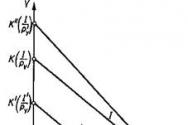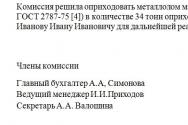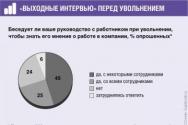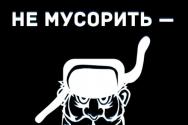The relationship and difference between giftedness, talent and abilities. Definition of the concepts of ability, giftedness, talent What is talent and giftedness
Topic 8. Abilities and intelligence
Prerequisites for genius in the works of V.P. Efroimson
Intellectual abilities
Theories of multiple intelligences. IQ concept
5. Intelligence in the structure of individual properties
Creativity
Abilities, giftedness, talent and genius
All levels of the triad "giftedness-talent-genius" have to do with both abilities and personality in general. In differential psychology, a certain tradition has developed in the study of each of the components. It should be noted that this triad is related to the phenomenon of creativity , which is also the subject of differential psychological analysis.
For a long time, “giftedness” was considered synonymous with “ability.” However, according to S.L. Rubinstein, which he expressed back in 1935, it is determined by a complex of personality properties.
B.M. Teplov(1941) understood giftedness as a set of abilities. At the same time, he believed that they not only coexist, but acquire a different character depending on the presence and degree of development of each other. This is a qualitatively new education, and not the sum of a certain number of abilities. In his opinion, the originality of the concepts of “giftedness” and “ability” is due to the fact that they are viewed through the prism of activity, the success of which is ensured by them. Therefore, we cannot talk about giftedness in general, but only about giftedness in some specific activity.
So, domestic psychologists believe: giftedness is a combination of a number of abilities that ensures the success (level and originality) of performing a certain activity. (Ilyin)
Wherein, giftedness is most often viewed as a component of natural abilities(Teplov, 1986), manifested in quantitative and qualitative characteristics of basic mental processes. The concept of inclinations as natural prerequisites for abilities, developed in the school of differential psychophysiology (Golubeva, 1994), forms the initial, organismic level in the study of giftedness. The existence of a general, impersonal or prepersonal nature of giftedness as the most important component of individuality is now considered almost generally accepted. (Libin)
Nartova-Bochaver notes that giftedness is understood in different ways. There is at least five definitions , each of which highlights different components giftedness as a complex phenomenon that is the object of study of psychophysiology, differential and social psychology. Giftedness can be understood as 1) a qualitatively unique combination of abilities that ensures the success of activities, 2) general abilities(as opposed to specific ones), determining the breadth of human capabilities, 3) mental potential - intelligence, suggesting breadth of generalization, logic(not artistic ability) 4) a set of inclinations, natural data, providing an initial high level in any activity(presence of innate prerequisites), 5) talent(conditions for success at the highest level).
Giftedness shows thanks to what initial, structural conditions it is possible to achieve a high result. However, this result may not be achieved. (Nartova-Bochaver)
A. Cold (1990) identifies six types of intellectually gifted people to her:
1) with a general intelligence indicator of more than 135-140 units;
2) with a high level of academic success;
3) with a high level of development of creative intellectual abilities - indicators of the speed of generating ideas and their originality;
4) with a high degree of success in performing certain types of activities;
5) with extraordinary intellectual achievements;
6) with extraordinary intellectual capabilities associated with the analysis, assessment and prediction of events in people's everyday lives.
The following stand out: characteristics of gifted individuals:
Combining vivid imagination with attention to detail while testing ideas objectively;
Ability for non-standard perception;
Intuition, ingenuity, unconscious mind;
Divergent thinking;
Curiosity;
Courage;
Imagination;
Concreteness of thinking;
Courage;
Aesthetic sensitivity.
Some Western psychologists have different approaches to intellectual talent. According to some authors, it represents the result of the interaction of three characteristics: above average ability, involvement in the task (high motivation) and creativity. What is important is a positive self-concept, a feeling of being able to come up with new ideas, theories, create something new, or find unconventional solutions to problems. At the same time, outstanding success is achieved if the above characteristics are manifested in certain activities.
According to other authors, the possibility of achieving exceptional success is the result of the interaction of five factors: two factors of intelligence, individual psychological abilities, environmental characteristics and chance..
Western psychologists distinguish several types of talent: general intellectual; specific academic; creative: artistic and performing arts; psychomotor; leadership; social.
Intellectual giftedness is characterized by “above average” intelligence. It provides the opportunity for creative intellectual activity associated with the creation of subjectively and objectively new ideas, the use of non-standard approaches in developing problems, sensitivity to the key, most promising lines of searching for solutions in a particular subject area, and openness to any innovation. A correlation has been identified between giftedness and vitality (in terms of active longevity).
Talent(from rrech" talenton»- weight, measure, then - the level of abilities) is identified by some psychologists with giftedness, by others it is considered as a high level of development of abilities, especially special ones. At the same time, it is believed that the results of a talented person’s activity should be distinguished by originality, fundamental novelty and guided by the need for creativity. This opinion was formed under the influence of the fact that signs of talent in people are noted in childhood precisely when it comes to art and mathematics. However, this is hardly true in relation to talent manifested in motor activity.
A talented (gifted) athlete can be considered such not by the results of creativity, but by the level and quality of execution of actions and activities, even of a routine nature (for example, in cyclic sports - running, swimming, rowing, etc.). And the talent shown in learning foreign languages is also not related to a person’s creative activity.
B. M. Teplov believed that talent is multifaceted, and there seems to be evidence for this statement. As you know, many poets (M. Lermontov, V. Zhukovsky, M. Voloshin) drew well. Griboyedov composed the music, Chaliapin himself created sketches of the costumes of the dramatic characters he was to play. But no one has yet decided to call them outstanding artists or composers. (Ilyin)
Libin indicates on giftedness as a symptom complex of the most general prerequisites for developmenttalent.The ratio of giftedness and talent should be considered as a ratio of the more general and the more specific. In this case, giftedness is a factor of a certain general ability for creativity, and talent acts as a special dimension in the development of special abilities.
The explanation seems significant differences between giftedness and talent from the standpoint of genetic-age changes, when the first acts only as a potential component, a natural prerequisite, and the second as a process actualized under the influence of environmental conditions and life experience.
The ability to achieve outstanding results is determined not only by the level of development of general and special abilities, but, above all, by their relationship with other individual properties (primarily motivational factors) and the opportunities provided by the environment ( Grzhibkova, 1988). Multidimensional models of talent emphasize the interactive nature of the interaction between personality preconditions, cognitive and eco-psychological variables ( Heller, 1986).
The connection between talent and personality traits is obvious.. This point of view receives concentrated expression in the concept of creative activity of the individual (Epiphany, 1983), according to which we can talk about the existence of a special symptom complex (type) of properties that are conducive to the development of talent. These are, for example, the desire to go beyond the limits of normative activity, which corresponds to the construct of “search activity” ( Arshavsky, Rotenberg 1976) and “sensation seeking” (Zuckerman, I994). Data from many other studies also allow us to consider talent as a variable associated with the personal level in the structure of individual properties.
Effect genius For many researchers of creativity, it seems not at all amenable to any schemes or measurements. (Libin)
Genius has been considered since I. Kant as the highest degree of talent, creative manifestations of a person, expressed in a product that has historical significance for the life of society, science, and culture. A genius, breaking outdated norms and traditions, opens a new era in his field of activity. It is recognized that genius is unpredictable and does not lend itself to any schemes or measurements. (Ilyin)
Trying to understand the uniqueness of genius is akin to trying to understand the uniqueness of human individuality. Genius is not just = giftedness + talent. Simple arithmetic equations are not applicable to the evaluation of complex systems. Genius can be understood only by turning to the integral analysis of its bearer - the individuality of the person who is considered a genius (A.V. Libin).
The term “genius” is used both to designate a person’s ability to be creative and to evaluate the results of his activities, suggesting an innate predisposition to productive activity in a particular area and the achievement of an outstanding result. Genius, unlike talent, is not just the highest degree of talent, but is associated with the creation of qualitatively new creations. The formula clearly distinguishes between geniuses and talents: “Genius does what it should, talent does what it can.”
By Buffon, genius lies in an extraordinary measure of endurance. Wordsworth defined genius as the act of enriching the intellectual world with some new element. Goethe argued that the initial and final characteristic of genius is the love of truth and the desire for it. According to Schopenhauer, the essence of genius is the ability to see the general in the particular and a constantly “pushing forward study of facts, a sense of what is truly important.” By Carlyle, genius is an extraordinary ability to overcome difficulties. By Ramon y Cajal- this is the ability, during the maturation of an idea, to completely ignore everything that is not related to the problem raised, and the ability to concentrate, reaching the point of trance. By V. Ostwald- this is independence of thinking, the ability to observe facts and draw the right conclusions from them. By Lyukka: “If we evaluate productivity objectively, namely as the transformation of something existing into value, as the transformation of the temporary into the eternal, then genius is identical to the highest productivity, and genius is continuously productive, because creativity is its essence, namely the transformation of words into deeds.” Consequently, the decisive role in increased creative output is not played by supernormal talent, but by an increased desire for realization, a very strong attitude leading to a continuous search for oneself. Geniuses often take a long time to find the area in which they are most gifted. According to the Oxford Dictionary definition, genius is a natural intellectual power of an unusually high type, an exceptional capacity for creativity requiring imagination, original thinking, invention or discovery. . Thus, the main thing in the phenomenon of genius turns out to be increased tone, the ability to concentrate, the power of vital forces (and the original abilities do not acquire paramount importance). Therefore, it is not surprising that in the search for the genetic prerequisites of genius, peculiarities of metabolism and hormonal balance are discovered, leading to increased productivity.
By now there are four main approaches trying to explain the phenomenon of genius .
1. Pathological theories They associate genius with madness, dementia, “racial degeneration,” and a decline in the physiological functions of geniuses. This tradition dates back to Aristotle and Plato, who noted the peculiarities of the delirium of great people. It was later shown that the level of their mental health is indeed often far from normal. According to V. Lange-Eichbaum, who studied 800 biographies of famous people, the pathological condition increases emotional sensitivity, weakens self-control, leading people into a state of depression, which, in turn, confronts them with the need for overcompensation; All this together leads to increased creativity.
2. Psychoanalytic theories focus on the motivational components of creativity, considering it as one of the psychological defenses (sublimation). According to this approach, creativity is a compensatory response to psychological or physiological problems (Beethoven, Demosthenes).
3. Theories of qualitative excellence They consider a person of genius as initially different from others, possessing “creative intelligence” - the ability to generate not only subjectively, but also objectively new things.
4. Theories of quantitative superiority view genius as the achievement of the upper limit of abilities that are inherent in many people, but usually do not receive motivational or educational reinforcement.
Empirical evidence of the validity of any of the listed theories has not yet been obtained, and genius is considered a polydeterministic phenomenon. (Nartova-Bochaver)
About the relationship between these concepts “giftedness”, “talent”, “genius” There are different points of view (A V. Libin, 2000). A number of authors consider giftedness only as the natural basis of abilities, sometimes reducing it to inclinations and linking it with the general factor of the ability to create.
Talent(from the Greek talanton - “weight, measure”, then - “level of ability”) is identified by some psychologists with giftedness, by others it is considered as a high level of development of abilities, primarily special ones. At the same time, it is believed that the results of a talented person’s activity should be distinguished by originality, fundamental novelty and guided by the need for creativity. This opinion was formed under the influence of the fact that signs of talent in people are noted in childhood precisely when it comes to art and mathematics. However, this is hardly true in relation to talent manifested in motor activity.
A talented (gifted) athlete can be considered such not by the results of creativity, but by the level and quality of execution of actions and activities, even of a routine nature (for example, in sports - running, swimming, rowing, etc.). The talent shown in learning foreign languages is also not related to a person’s creative activity.
B. M. Teplov believed that talent is multifaceted, and it would seem that there is evidence for this statement. As you know, many poets (M. Lermontov, V. Zhukovsky, K. Khetagurov, M. Voloshin) drew well. Griboedov composed the music, Chaliapin himself created sketches of the costumes of the dramatic characters whose roles he was to play. But no one has yet decided to call them outstanding artists or composers. And what kind of “artist” A.S. Pushkin was, there is no need to say. One can only note that those gifted in some form of creativity are not deprived of some other creative abilities, but nothing more.
Genius has been considered since the time of I. Kant as the highest degree of talent and creative manifestations of a person, expressed in a product that has historical significance for the life of society, science, and culture. A genius, breaking outdated norms and traditions, opens a new era in his field of activity. It is recognized that genius is unpredictable and does not lend itself to any schemes or measurements. The connection between talent and personality traits is noted. L.B. Bogoyavlenskaya (1983) even talks about a certain symptom complex that is conducive to the development of talent. It includes, for example, the desire to go beyond normative activity.
For manifestation and development giftedness (talent, genius) requires high performance, dedication of a person, sustainable motivation (personal orientation), mastery of knowledge and skills in a special field of activity.
Taking this into account, attempts are made to separate giftedness and talent, genius, taking into account what is given by nature and its implementation. Then giftedness is a successful combination of different abilities, and talent and genius are a manifestation of a high level of giftedness in something. “Unique” works, according to scientists, are created thanks to unique abilities and complete dedication. The last component corresponds to the opinion of many geniuses and talents about the reasons for their success.
Isaac Newton said that genius is the patience of thought concentrated in a certain direction. When asked how he managed to discover the laws of classical physics, he answered: “I thought about it all the time.” The famous artist Vincent Van Gogh wrote to his brother that painting is not such a difficult task, you just need diligence and some mastery of the craft.
Research has shown that the most talented individuals are individuals who are dissatisfied with their results capable of self-development, who, under the influence of new requirements, tirelessly engage in self-education and rebuild their thinking. The statement of the outstanding pianist G. Neuhaus deserves attention: although it is impossible to create geniuses and talents, it is possible to create a culture, and the wider and more democratic it is, the easier it is for talents and geniuses to grow. This also applies to the question of what role the social environment plays in the realization of talent.
A number of scientists defend the point of view that talent and genius are determined by heredity. For proof, the pedigrees of outstanding representatives of science and art are given. So, great-grandmother L.N. Tolstoy, Olga Trubetskaya, and great-grandmother A.S. Pushkin, Evdokia Trubetskaya, were sisters. Therefore, the named constellation of outstanding people rather testifies to the natural chance of their talent, and not to its hereditary conditioning, especially since they showed their talent in different fields: poetry, philosophy, physics.
Innate talent and genius should not be confused with heredity, which is often stated in psychological and popular science literature. Talent and genius are not inherited, otherwise talented people would only be born to talented parents, and all their children would be so. However, they are also born to parents who are not at all talented, and out of many children in a family, one or two children may become talented. For example, of the 16 composers of the Bach family, only Johann Sebastian is recognized as a genius; Of all the Tolstoy brothers, only Lev Nikolaevich became outstanding; out of 14 (and according to some sources, even out of 17) Mendeleev brothers and sisters, only Dmitry Ivanovich is recognized as a genius; of the 3 Pavlov brothers - only Ivan Petrovich. The same fact that there were 26 people in Bach’s family with musical abilities may be associated with their upbringing in a musical environment, with the development of their abilities by their parents.
And the apt popular saying that nature most often rests on children confirms the truth: talent, if inherited, is insignificant. Thus, a study of adopted children adopted at birth showed that their mental abilities were more consistent with those noted in their biological parents than in their adopted ones. However, relative similarity in these abilities between children and biological parents is not always observed and sharply decreases with age. The ability to achieve outstanding results is determined not only by high natural performance, but also by motivational factors and the conditions available to a person to demonstrate his talent. So, one woman, unremarkable for the time being, after retiring, took up drawing. Now her paintings are eagerly purchased by museums and private collectors. Or another example. A loader at the Odessa port took part in amateur performances until he was 40, until one of the Moscow music teachers liked his voice. Two years later, the former loader was already singing as a soloist of the Bolshoi Theater.
Introduction
1 Abilities
1.1 Concept of abilities
1.2 Classification of abilities
1.3 Abilities and inclinations
2 Giftedness
2.1 The concept of giftedness
2.2 The influence of the social environment on giftedness
2.3 Technology of working with gifted children
Conclusion
Bibliography
Introduction
Analysis of the problem of developing abilities and giftedness will largely be determined by the content that we will put into these concepts.
Significant difficulties in defining the concepts of ability and giftedness are associated with the generally accepted, everyday understanding of these terms. If we turn to explanatory dictionaries, we will see that very often the terms “capable”, “gifted”, “talented” are used as synonyms and reflect the degree of expression of abilities. But it is even more important to emphasize that the concept of “talented” emphasizes a person’s natural abilities. Thus, in V. Dahl’s explanatory dictionary, “capable” is defined as “suitable for something or inclined, dexterous, handy, suitable, convenient.” Along with “capable,” the concepts “capable” and “adaptable” are used. A capable person is characterized as resourceful, resourceful, able to be flexible, and being able, in turn, is understood as the ability to cope, manage, arrange things. Capable here is actually understood as skillful, but the concept of “skill” is not in the dictionary. Thus, the concept of “capable” is defined through its relationship with success in activity.
When defining the concept of “talent,” its innate nature is emphasized. Talent is defined as a gift for something, and talent is an ability given by God. In other words, talent is an innate ability given by God that ensures high success in activity. The dictionary of foreign words also emphasizes that talent (gr. talanton) is an outstanding innate quality, special natural abilities.
Giftedness is considered as a state of talent, as the degree of expression of talent. It is not without reason that giftedness, as an independent concept, is absent from Dahl’s dictionary and S.I. Ozhegov’s dictionary and the Soviet Encyclopedic Dictionary and the explanatory dictionary of foreign words.
From what has been said, we can conclude that abilities, on the one hand, and giftedness and talent, on the other, are distinguished as if for different reasons. Speaking about ability, they emphasize a person’s ability to do something, and when speaking about talent (giftedness), the innate nature of a given quality (ability) of a person is emphasized. At the same time, both abilities and talent are manifested in the success of activities.
In Soviet psychology, primarily through the works of S. L. Rubinstein and B. M. Teplov, an attempt was made to classify the concepts of “ability,” “giftedness,” and “talent” on a single basis - the success of activities. Abilities are considered as individual psychological characteristics that distinguish one person from another, on which the possibility of success in activity depends, and giftedness is considered as a qualitatively unique combination of abilities (individual psychological characteristics), on which the possibility of success in activity also depends.
1 Abilities
1.1 Concept of abilities
In the most general terms capabilities- these are individual psychological characteristics of a person that ensure success in activities, communication and ease of mastering them. Abilities cannot be reduced to the knowledge, skills and abilities that a person has, but abilities ensure their rapid acquisition, fixation and effective practical application. Success in activity and communication is determined not by one, but by a system of different abilities, and they can be mutually compensated.
Abilities (as well as a person as a whole) are studied by various sciences - philosophy, sociology, medicine, etc. But none of them examines the problem of abilities as deeply and comprehensively as psychology. A serious contribution to the study of the problem of abilities was made by domestic scientists S.L. Rubinstein, B.M. Teplov, N.S. Leites and others.
1.2 Classification of abilities
In science, abilities are classified into innate (from inclinations) and acquired (from knowledge, skills, abilities).
There are a number of classifications of abilities. Let us reproduce one of them, the most significant:
1) natural (or natural) abilities are basically biologically determined, associated with innate inclinations, formed on their basis, in the presence of elementary life experience through learning mechanisms (such as conditioned reflex connections);
2) specific human abilities that have a socio-historical origin and ensure life and development in the social environment (general and special higher intellectual abilities, which are based on the use of speech, logic, theoretical and practical, educational and creative). Specific human abilities are in turn divided into:
a) general ones, which determine a person’s success in a wide variety of activities and communication (mental abilities, developed memory and speech, accuracy and subtlety of hand movements, etc.), and special ones, which determine a person’s success in certain types of activity and communication, where a special kind of inclinations and their development are required (mathematical, technical, literary and linguistic, artistic and creative abilities, sports, etc.). These abilities, as a rule, can complement and enrich each other, but each of them has its own structure;
b) theoretical, which determine a person’s inclination towards abstract-logical thinking, and practical, which underlies the inclination towards concrete practical actions. The combination of these abilities is characteristic only of multi-talented people;
c) educational, which influence the success of pedagogical influence, a person’s assimilation of knowledge, abilities, skills, the formation of personal qualities, and creative, associated with success in creating works of material and spiritual culture, new ideas, discoveries, inventions. The highest degree of creative manifestations of a personality is called genius, and the highest degree of a person’s abilities in a certain activity (communication) is called talent;
d) the ability to communicate, interact with people, namely, human speech as a means of communication, the ability to perceive and evaluate people, socio-psychological adaptability to different situations, coming into contact with different people, liking them, etc., and subject-activity abilities associated with the interaction of people with nature, technology, symbolic information, artistic images, etc.
1.3 Abilities and inclinations
In science, the concepts of “inclinations” and “abilities” are clearly distinguished.
The vast majority of psychologists believe that inclinations are innate anatomical and physiological characteristics of the brain, nervous system, sensory and movement organs, functional characteristics of the human body, which form the natural basis for the development of his abilities. People are naturally endowed with various inclinations; they underlie the development of abilities. Inclinations that are not developed in time disappear. Many people know of cases where children, having found themselves in the den of beasts and thus not receiving the opportunity to develop their inclinations, lost them forever.
However, some scientists (for example, R.S. Nemov) believe that a person has two types of inclinations: innate (natural) and acquired (social).
Capabilities - these are individual psychological characteristics that are formed in activity on the basis of inclinations, distinguishing one person from another, on which the success of activity depends.
Each ability that makes a person suitable for performing a certain activity always includes some operations or modes of action through which this activity is carried out. That is why, as S.L. said. Rubinstein, not a single ability is an actual, real ability until it has absorbed a system of corresponding socially developed operations. From this point of view, a certain ability is always a complex system of methods, actions and operations.
2 Giftedness
2.1 The concept of giftedness
Giftedness is a qualitatively unique combination of abilities that ensures the success of an activity. The joint action of abilities representing a certain structure makes it possible to compensate for the insufficiency of individual abilities through the preferential development of others.
The main functions of giftedness are maximum adaptation to the world and environment, finding solutions in all cases when new, unforeseen problems are created that require a creative approach.
Like individual abilities, giftedness can be special (for a specific activity) or general (for various types of activity).
It is very important to explore the question of what abilities are “key”, leading for each type of activity. This helps to find the most effective methods for developing such abilities in people and increasing the overall culture and productivity of work.
The qualitative uniqueness of a person’s giftedness necessarily affects the characteristics of his activity. In life, it is not difficult to find people who are equally successful in the same creative activity. But it is very difficult to single out at least two of them that would perform it in the same way.
Thus, due to the qualitative uniqueness of the combination of abilities in different people, all creativity is characterized by its individuality and originality. Without this, creative progress and all the diversity of human creative products would be unthinkable. Therefore, in the process of raising and educating children, it is necessary not to ignore the qualitative uniqueness of their abilities and talents that appears in them, but to develop it by applying various methods of individual influence to students.
Giftedness, as the most general characteristic of the sphere of abilities, requires a comprehensive study - psychophysiological, differential psychological and socio-psychological.
2.2 The influence of the social environment on giftedness
The results of various researchers examining the influence of the social environment (socio-economic relations, material support, social conditions, etc.) on giftedness are not clear. But it is possible to draw the following conclusions: socio-economic conditions influence the development of giftedness, because they determine a person's standard of living; The more economically developed a society is, the more favorable the opportunities for human development.
A very important condition for the development of giftedness is the family, namely:
family structure and emotional climate;
styles of parent-child relationships;
Parents' attitude towards children's giftedness.
The issue of styles of parent-child relationships has been studied in more detail. Scientists are unanimous that styles based on strict control and forceful pressure do not provide opportunities for the development of a gifted personality. An important aspect is the attitude of parents towards children's giftedness. Obviously, this factor is one of the main ones influencing the realization of a child’s capabilities.
Relationship types:
negative;
ignoring;
positive;
hypersocialization (when parents see giftedness as prestige, an opportunity for self-affirmation through the outstanding abilities of their children or the realization of their unfulfilled opportunities).
2.3 Technology of working with gifted children
It should be remembered that no matter how gifted a child is, he needs to be taught. It is important to teach perseverance, to teach to work, to make decisions independently.
A gifted child does not tolerate pressure, harassment, or shouting, which can lead to problems.
It is difficult to cultivate patience and unobtrusiveness in such a child. A huge workload is required for the child; from preschool age he should be introduced to creative work, and an environment for creativity should be created.
To develop their talents, gifted children must have freedom of time and space, be taught an expanded curriculum, and feel individualized care and attention from their teacher. Wide time frames contribute to the development of the problem-search aspect. The emphasis is not on what to study, but on how to study. If a gifted child is given the opportunity not to rush through a task and not jump from one thing to another, he will best comprehend the mystery of the connection between phenomena and learn to apply his discoveries in practice. Unlimited opportunities to analyze expressed ideas and assumptions, to delve deeply into the essence of problems contribute to the manifestation of natural curiosity and inquisitiveness, the development of analytical and critical thinking.
One of the forms of working with talented children in modern conditions is the creation of Children's Creativity Houses.
It is important, when you see a child’s talent, not to leave it to chance, not to think that he will find his way on his own. It is necessary to ensure maximum development; without helping, it is not difficult to make it below mediocrity.
3 Talent
A particularly high level of giftedness is denoted by the concepts of “talent” and “genius.”
Talent is a high level of development of abilities, manifested in creative achievements that are important in the context of cultural development, primarily special abilities. The presence of talent should be judged by the results of activities, which should be distinguished by fundamental novelty and originality of approach.
Talent may manifest itself at different times in different areas. Thus, in music, drawing, mathematics, linguistics, and technology, it usually manifests itself at an early age; and talent in the literary, scientific or organizational fields is discovered at a later age.
The maximum productivity of talented people also manifests itself at different ages: in science at 35 - 40 years old; in poetry at 24 - 30, etc.
Talent and genius differ, first of all, in the objective significance and at the same time the originality of what they are capable of producing. Talent is characterized by the ability to achieve achievements of a high order, but remaining, in principle, within the framework of what has already been achieved; genius presupposes the ability to create something fundamentally new, to pave truly new paths, and not just reach high points on already beaten roads. The high level of giftedness that characterizes genius is inevitably associated with excellence in different or even all areas. As an example of universalism, often characteristic of geniuses, it is enough to name Aristotle, Leonardo da Vinci, R. Descartes, G. V. Leibniz, M. V. Lomonosov, K. Marx. But the talent of a genius also has a certain profile, and some side dominates in it, some abilities are especially identified and formed in the leading direction of his work.
Conclusion
The nature of human abilities causes quite heated debate among scientists. Are our abilities innate or are they formed during our lifetime? Do you need to be born a musician, or is talent, as the famous saying goes, 1% ability and 99% perspiration? Among scientists there are active adherents of both one and the other point of view.
Proponents of the idea of abilities argue that abilities are biologically determined and their manifestation depends entirely on the inherited genetic stock. Training and education, scientists who take this position believe, can only speed up the process of manifestation of abilities, but even without pedagogical influence they will certainly manifest themselves.
Representatives of the other extreme point of view believe that mental characteristics are determined by the quality of education and training and that any person can develop any abilities. Supporters of this trend refer to cases where the children of the most primitive tribes, having received appropriate training, were no different from educated Europeans. Here they talk about the so-called “Mowgli children”, which convincingly testify to irreparable damage, even the impossibility of human development outside of society.
Abilities are formed and developed in the process of activity on the basis of inclinations - hereditary and innate psychological qualities of a person. Consequently, in order to develop the ability for this type of activity, it is imperative to carry out this activity. Abilities characterize a person as a subject of activity.
The problem of talent and genius has been facing psychologists for a long time, and today there is no single concept within the framework of any personality theory that would explain it in full. Most personality theories consider only some aspects of this problem. Nevertheless, the study of issues of the structure of talent is very important, both for the theory of psychology and for solving specific psychological and pedagogical problems of modern education.
When considering psychological literature, the question arises about the relationship between the concepts of giftedness, talent and genius. In many sources, the concepts of giftedness and talent are interpreted as synonymous and are not separated. Genius is seen as the highest degree of manifestation of talent or giftedness. Hence the need to introduce precise concepts to further clarify the problem.
In modern literature, more and more articles and publications appear that touch on this topic in one way or another. True, they are all just a drop in the ocean of psychological problems that appear among teachers and parents of gifted children in our time, when information changes every five years, and sometimes more often. Today's schoolchildren have to fit so much into their memory that sometimes their young, unstable psyche cannot withstand such loads. Hence the emotional breakdowns and depression. Here we no longer have to talk about the development of creative potential, which requires a careful, thoughtful attitude; there is a continuous race for the quantity and quality of knowledge.
Many figures of modern science highlight the personal factor as the only one thanks to which humanity can move forward. Therefore, both abroad and in our country, new programs for the development of talented children and adolescents are being developed, giving them the opportunity to begin realizing their potential as early as possible. But in my opinion, truly good methods can only be developed on the basis of a solid theoretical basis, after the problem has been comprehensively studied and theoretical positions have been formed within the framework of a unified psychological and pedagogical concept.
Bibliography
Capabilities. Paths development abilities
Abstract >> PsychologyPhysical work. Highest level development abilities called talent. Talent- this is a combination abilities, giving a person the opportunity... evidence of numerous psychological observations of gifted children, manifest themselves in the vast majority...
Leites N.S. Mental abilities and age. – M.: Education, 1960.
Nemov R.S. Psychology: Textbook for universities. – M.: Higher Education, 2005.
Psychology and pedagogy: textbook. allowance / Ed. A.A. Radugina. – M.: Publishing House “Center” 2002.
development development abilities: ability, giftedness, talent, genius." (Yu.B. Gippenreiter) “...category abilities is one of the most important...The development of abilities is non-linear; there are three levels of their development: giftedness, talent, genius.
A person capable of various types of activity and communication has general talent, that is, a unity of general abilities that determines a wide range of intellectual capabilities, a high level of mastery of activity and originality of communication.
Definition. Giftedness is a high level of expression of abilities, providing the opportunity to successfully perform an activity.
Thus, giftedness constitutes the first level of development of abilities, which many children possess at the beginning of development due to their individual psychological characteristics and inclinations.
The next level of expression of abilities is characterized by the concept of “talent”.
Definition. Talent is a combination of abilities that gives a person the opportunity to successfully, independently and originally perform any complex activity.
Talent manifests itself in specific activities and, as a rule, arises and develops in that proportion of gifted children who begin to actively study and engage in activities that contribute to the development of their talent. If in talent the inclinations are combined with inclinations, then the child has an urge to continue to engage in activities in which he is successful. However, this may not happen, and then the talent turns out to be unclaimed by the social situation or the person himself; With the further development of talent, the highest level of manifestation of abilities arises - genius.
Definition. Genius is the highest level of development of abilities, creating the opportunity for an individual to achieve results that open a new era in the life of society, in the development of science and culture.
Talented people are often found in various fields of activity, they successfully realize themselves, but genius is an exceptional rarity, this is expressed in the saying “geniuses are born once every hundred years.”
Thus, in the process of developing and improving abilities, only a few people reach the highest point of their development, therefore one of the tasks of differential psychology is to identify gifted children as early as possible in order to continue their special training and upbringing in order to further develop their abilities.
The creative level in turn is divided into the following levels:
genius.
giftedness;
Giftedness – This is a qualitatively unique combination of abilities that give a person the opportunity to successfully engage in one or more types of activity.
The term “Giftedness” has many meanings. Giftedness can be general or special. General is sometimes called mental. The range of special gifts is quite large.
When they talk about giftedness, they most often mean children, since it is a little late to talk about the available opportunities in relation to the activities of an adult; it’s time to turn them into talent.
Talent – This is a high level of development of abilities, primarily special ones in their totality, which makes it possible to create original results in human activity, distinguished by fundamental novelty.
Most talented people had several highly developed abilities. Lermontov and Pushkin painted, the chemist Borodin wrote music, etc.
Genius – This is the highest level of development of abilities, which allowed an individual to achieve such results of creative activity that constitute an era in the life of society, in the development of culture, have historical significance and create new directions in science, art, and technology.
Geniuses are characterized by working in a large number of directions, where they create their works (Leonardo da Vinci, M.V. Lomonosov).
Characteristics of a genius:
1)work in different areas of science and art and the creation of completely new discoveries and works of art;
2) high labor productivity (their productivity is colossal);
3)extensive knowledge of scientific and creative heritage, i.e. a genius grasps and extracts the essence from everything that was discovered before them;
4) a genius always creatively reworks the basic ideas and concepts of previous generations and, if necessary, very harshly discards outdated ideas and concepts. He can always prove his point of view and explain why he rejects it. Unrecognized geniuses cannot convince people that they are right, do not recognize any authorities and often deny without knowing the depth of the issue.
5) the results of the creativity of a genius should help the progress of humanity (in order to discard the “evil genius”). But this sign is not required.
Development of abilities.
All theories of abilities can be reduced to three groups:
1. Heritability of abilities. Already in the genetic apparatus this or that level or area of abilities is transmitted. (Galton)
2. Acquired abilities. The dependence of the emergence of abilities and the degree of its development on the method of learning.
3. The ratio of natural and acquired. Abilities are formed and developed through activity.
Any inclinations must go through a long development path before developing into abilities. In the process of developing abilities, a number of stages can be distinguished:
1. The anatomical and physiological basis of future abilities is being prepared.
2. The formation of the makings of a non-biological plan is underway.
3.The required ability develops and reaches the appropriate level.
All these processes can occur in parallel, overlapping each other to one degree or another.
Rubinshtein S.L. said that the development of abilities occurs in a spiral : realized opportunities that represent abilities at one level open up opportunities for further development of abilities at a higher level.
The development of abilities is directly dependent on specific techniques and techniques aimed at developing relevant skills, abilities and knowledge transfer. The most effective way to develop abilities is to develop the child’s personality, his needs, interests, levels of aspirations, etc., i.e. impact on the whole personality of the child. It is necessary to take into account sensitive periods that favor the development of certain abilities. Most abilities begin to develop in preschool age.
Requirements for activities that develop abilities: a) the creative nature of the activity, b) the optimal level of difficulty for the performer, c) proper motivation and d) ensuring a positive emotional mood during and after the completion of the activity.







